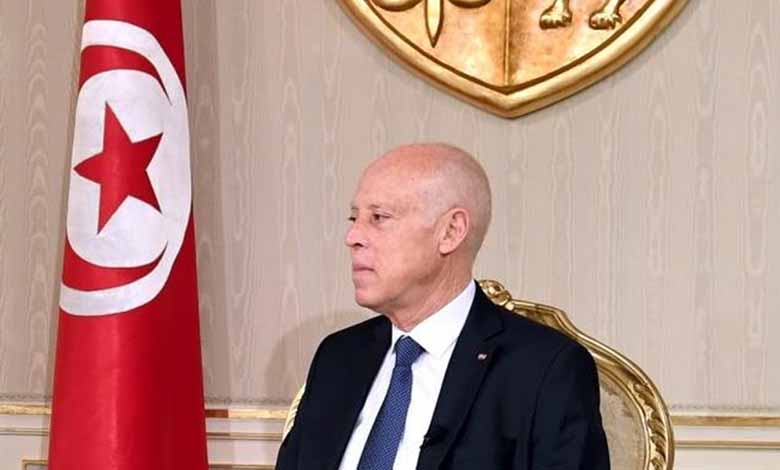Saied refuses foreign intervention in the Ghannouchi detention case

Tunisian President Kais Saied expressed his categorical rejection of any foreign interference in his country’s affairs, singling out the discomfort of some Western capitals and foreign destinations “due to the arrest of those who called for a civil war,” in the clearest reference to the imprisonment of the president of the Islamic Ennahdha Movement, the president of the dissolved parliament, Rached Ghannouchi, on charges of inciting violence.
“The law has been applied by honest judges,” Saied said in his first comments on Ghannouchi’s arrest and the decision to put him in prison.. We did not arrest a person for his opinion or position.”
“What does it mean for them to express their annoyance at the arrest of a person and not to be disturbed when 13 soldiers were slaughtered during the month of Ramadan at the time of iftar or when a presidential security bus was blown up,” he said, referring to two of the biggest terrorist acts Tunisia has seen during the rule of the troika government led by the Islamist Ennahdha movement in the past decade after the January 2011 revolution.
The Tunisian president considered this blatant interference in Tunisia’s internal affairs unacceptable. “We are an independent sovereign state and we do not allow anyone to interfere. Our history in the struggle for rights and freedoms goes much deeper than the history of many countries,” he said.
He reminded those who expressed concern about the arrest of the head of the Ennahda Movement or others being investigated on suspicion of conspiring against state security that “Tunisia is not a colonial state or under guardianship,” adding that “those who are upset because their friendship is with a certain person, their friendship is within one framework and the state is in another framework, and we will not accept this.”
He also called on those forces to stop interfering in his country’s affairs, saying: “We are not students waiting for lessons to come from any side.. Those who believe that there is a differential arrangement for states are delusional: the Tunisian people will never give up their sovereignty and we will continue our march to achieve the set goals.”
Ghannouchi’s arrest on the grounds that he said that Tunisia without political Islam and with no left means a civil war, in a clear indication that his party is an Islamist party, contrary to the previous claim made by Ennahdha that it is a civil party with an Islamic authority, was the most decisive decision since the Tunisian authorities arrested a number of figures, including politicians and businessmen, on charges of conspiring against state security and being behind the disappearance of basic commodities from the local market in order to cause social chaos, incite public opinion against power and threaten social peace.
Ghannouchi was placed in jail on Tuesday by an investigating magistrate on suspicion of conspiring against state security, amid widespread international criticism from the United States, Europe and Turkey.
Turkish President Recep Tayyip Erdogan has expressed alarm at Ghannouchi’s arrest. He said that his country is in contact with the Tunisian side in this regard but has not been able to communicate with the official authorities.












